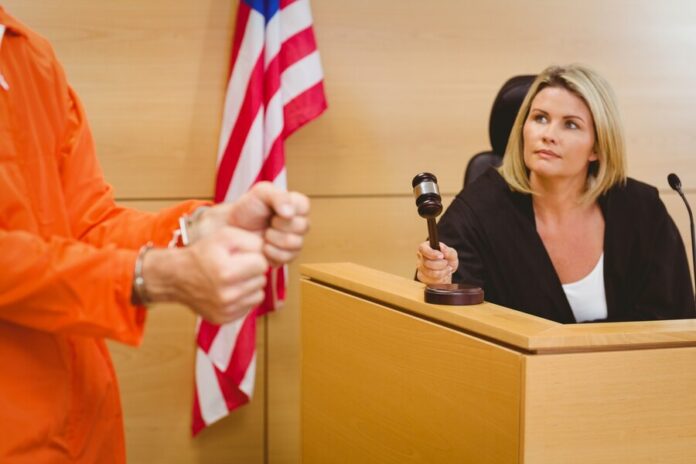Introduction
The longstanding issue of incest has profound legal, psychological, and social implications, making it a critical area for understanding and reform. The case of David Jaggers, a UK national convicted for incest-related offenses, brings this sensitive topic into sharper focus.
This blog examines the intricacies of UK incest laws, uses the David Jaggers case as a focal point, and explores the role of legal frameworks and societal support in addressing incest. We’ll also provide actionable steps for parents and legal professionals in identifying and dealing with incest cases effectively.
A Historical Perspective on UK Incest Laws
Incest laws in the UK have evolved significantly, often influenced by cultural, religious, and social norms. Historically, incest was not just considered a familial or moral issue but also a criminal offense. Laws addressing incest have aimed to protect vulnerable individuals, especially children, and prevent the genetic risks associated with intra-familial relationships.
The Incest Act of 1908 was a landmark piece of legislation that aligned societal norms with legal measures. Over time, the modern legal framework has come to rely on the Sexual Offenses Act 2003, detailing the boundaries of lawful relationships and addressing abuse within familial dynamics.
Despite these laws, real-world cases like that of David Jaggers underline the challenges in detection, enforcement, and societal understanding of incest.
The David Jaggers Case and Its Legal Implications
David Jaggers made headlines for his crimes, which involved severe violations of familial and legal boundaries. While details remain highly sensitive due to the involvement of minors, his conviction shed light on the UK’s preparedness to address such cases.
This case highlighted three critical aspects of UK incest laws:
- Legal Complexity: Understanding what legally constitutes incest under the Sexual Offenses Act 2003.
- Enforcement Challenges: The difficulty of identifying and prosecuting cases of incest due to familial secrecy, fear, and underreporting by victims.
- Protection of Victims: Ensuring the enforcement process supports victims, especially minors, in recovering from trauma and leading healthier lives.
Jaggers’ actions drew widespread condemnation, refocusing attention on the protections available for child welfare in incest cases and the gaps that still need to be addressed.
The Role of Social and Legal Support in Incest Cases
Addressing incest requires more than legal action—it demands a robust collaboration between social services, child welfare organizations, and law enforcement.
Social Support Systems
- Providing safe housing, therapy, and resources for victims of incest to recover from trauma.
- Educating families and communities to recognize early warning signs of predatory behavior within households.
Legal Measures
- Encouraging open communication within families while reinforcing legal consequences for abusers.
- Supporting victims through the legal process to ensure they feel safe in reporting crimes without fear of further harm or stigma.
The intersection of these supports ensures that victims are heard, protected, and empowered to rebuild their lives.
Impact of Incest Laws on Families and Communities
Incest does not only affect individual families—it has far-reaching consequences on the broader community. Such acts destroy trust within familial units and disrupt the economic and emotional stability of households.
Communities often find themselves grappling with the stigma associated with incest, which can lead to isolation and a lack of resources for affected individuals. Educating society on the existence of incest laws and promoting a culture of openness and empathy can help mitigate this impact.

Advancing the Legal Framework on Incest in the UK
The David Jaggers case underscores the need for continuous evaluation and improvement of the UK’s legal framework on incest. Policymakers and child welfare advocates have proposed several potential changes:
- Mandatory Reporting: Enforcing requirements for educators, healthcare providers, and social workers to report suspicions of incest.
- Enhanced Penalties: Encouraging stricter legal consequences for incest crimes to deter potential offenders.
- Proactive Prevention Programs: Governments could fund awareness campaigns and education initiatives that target vulnerable families, helping to break cycles of abuse.
Modernizing laws to accommodate technological changes, such as digital grooming within families, should also be prioritized.
Advice for Parents and Legal Professionals
If you’re a parent or legal professional navigating concerns related to incest, here are some practical steps to consider.
For Parents
- Recognize Warning Signs: Look out for sudden behavioral changes in your child, unexplained injuries, or aversion to specific family members.
- Open Communication: Maintain an environment where children feel safe discussing their feelings and experiences without judgment.
- Seek Help: If you suspect abuse, contact child protection services or law enforcement immediately. Support your child with counseling and therapy through trusted providers.
For Legal Professionals
- Prioritize Victim-Centric Approaches: Ensure that victims receive the necessary support throughout legal proceedings.
- Stay Up-to-Date: Continuously educate yourself on new legal developments and best practices in handling incest cases.
- Collaborate Across Agencies: Work with social workers, therapists, and law enforcement to provide holistic support to affected individuals.
Creating a Safer Future for Children
The case of David Jaggers is a somber reminder of the need for vigilance, awareness, and robust legal actions against incest. Strengthening support systems for victims, refining UK incest laws, and promoting education around child welfare and parental responsibility can all contribute to creating a safer future for children.
Parents and legal professionals alike play a critical role in addressing these issues. Together, we can ensure that children grow up in environments free from harm and full of opportunities to thrive.


